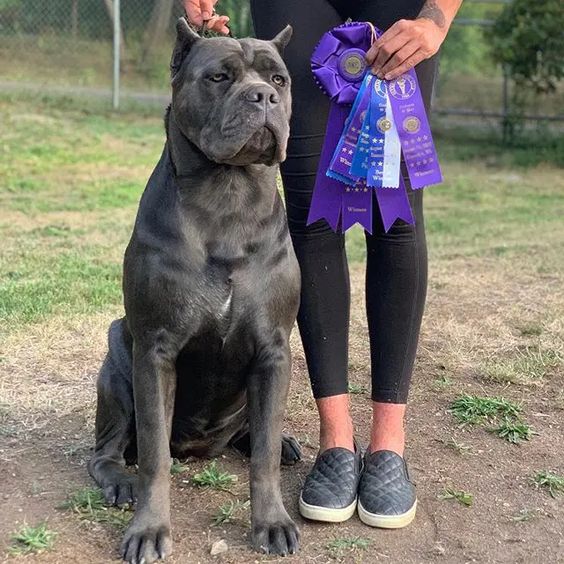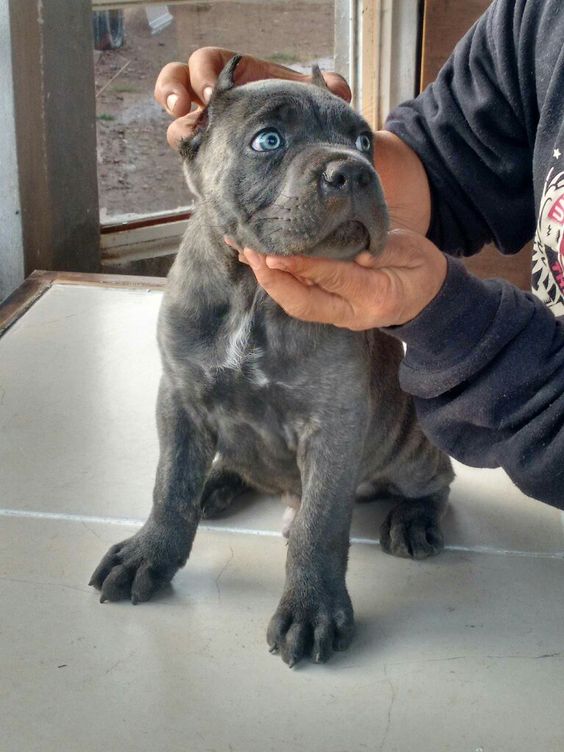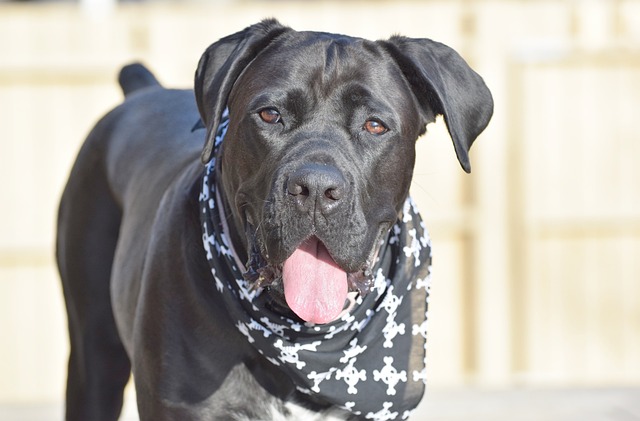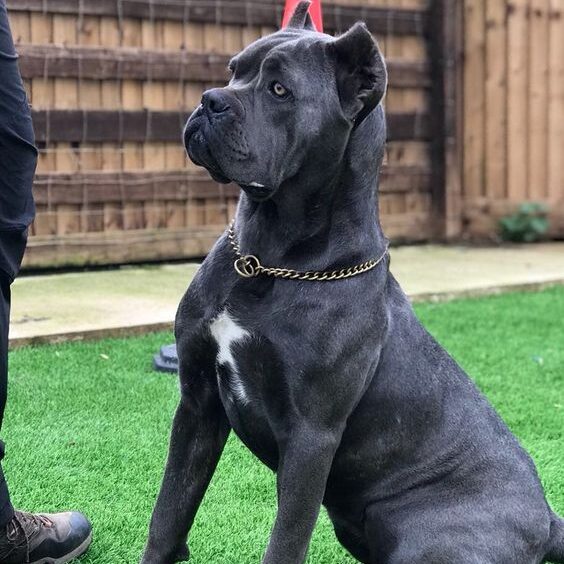
Socializing your Cane Corso is not just a routine activity; it’s the cornerstone of raising a well-adjusted and confident companion. This guide will take you through the essential aspects of socialization and why it is crucial for your Cane Corso’s overall well-being and temperament. “Cane Corso Socialization”
Why Socialization is Important for Your Cane Corso
The Role of Socialization in a Cane Corso’s Life
Socialization plays a pivotal role in shaping your Cane Corso’s life. During the critical period between 3 and 14 weeks of age, puppies are like sponges, soaking up experiences that will influence their behavior as adults. Exposure to various people, animals, environments, and situations helps them become adaptable and less likely to react fearfully or aggressively to new stimuli.
The Benefits of Proper Socialization
Proper socialization yields a multitude of benefits for your Cane Corso. It fosters confidence and reduces anxiety, making them more relaxed and enjoyable companions. A well-socialized Cane Corso is less likely to display aggressive behaviors and is better equipped to handle new and unfamiliar situations throughout their life.
Socialization also contributes to better obedience and problem-solving skills. It helps your dog understand boundaries, respect commands, and respond positively to your guidance. Additionally, it can strengthen the bond between you and your furry friend, as trust and mutual understanding grow through shared experiences.
Potential Behavioral Issues Without Socialization
Failing to socialize your Cane Corso can lead to a host of behavioral problems. They may become anxious, fearful, or aggressive when confronted with novel situations or encounters. Unsocialized dogs may exhibit excessive barking, destructive behavior, or even pose a risk to other animals and people.
Moreover, an unsocialized Cane Corso might struggle to adapt to changes in their environment, making travel, visits to the veterinarian, or any disruption to their routine a stressful ordeal. This can not only impact their quality of life but yours as well.
At What Age Does Socialization Need to Start
Socialization is a critical component of raising a well-adjusted Cane Corso, and timing is everything. So, at what age does socialization need to start? Let’s dive into this important aspect of your puppy’s development.
| Age | Socialization Training Level |
|---|---|
| Puppy (0-14 weeks) | High level of socialization training is essential. This is the critical window for exposure to various people, animals, environments, and experiences. Regular, positive interactions are crucial. Puppy classes and controlled playdates are highly beneficial. |
| Adolescent (3-6 months) | Continued high level of socialization is important. Adolescents may go through fear periods, so be patient and provide positive reinforcement. Focus on reinforcing previous training and introducing more complex environments. |
| Young Adult (6-18 months) | Socialization remains important, but the intensity may decrease slightly. Your Cane Corso should have a solid foundation by this stage, so focus on reinforcing good behavior and providing occasional exposure to new experiences. |
| Adult (18 months and older) | Socialization continues to be relevant, but the frequency can decrease. Ongoing socialization ensures that your Cane Corso remains well-adjusted and confident. Regular exposure to various environments and occasional interactions with other dogs and people are sufficient. |
The Critical Socialization Window
The critical socialization window for puppies typically spans from about 3 to 14 weeks of age. During this period, your Cane Corso is like a blank canvas, eagerly absorbing every experience, interaction, and environment they encounter. This window of opportunity is when they are most receptive to new stimuli, making it the perfect time to expose them to various people, animals, sounds, and situations.
Socializing a Cane Corso Puppy
Socializing a Cane Corso puppy is a delightful journey filled with discovery and bonding. Begin by introducing your pup to a wide range of positive experiences. Encounters with different people, including children and seniors, can help them learn to trust and feel comfortable in diverse social settings.
Socializing with other dogs is equally important. Arrange playdates or attend puppy socialization classes where they can interact with dogs of various breeds and temperaments. These interactions teach them vital doggy social skills and ensure they grow up to be well-mannered around their furry peers.
Exposure to various environments is also crucial. Take your Cane Corso puppy on car rides, walks in the park, and visits to different locations. This will prevent them from developing fear or anxiety when faced with new surroundings in the future.
Socialization for Adult Cane Corsos
While the critical socialization window for puppies is the most opportune time, socialization remains relevant throughout your Cane Corso’s life, even if you’ve adopted an adult dog. Adult Cane Corsos can benefit from socialization, too, but it may require more patience and a gradual approach.
Start with introducing them to new experiences and environments at a pace they’re comfortable with. Pay attention to their body language and reactions, and always use positive reinforcement to create positive associations. With time and dedication, even adult Cane Corsos can become more confident and sociable companions.
In summary, the critical socialization window for Cane Corso puppies is a golden opportunity to shape their behavior and ensure they grow into confident, well-adjusted adults. However, socialization remains relevant throughout their lives, making it an ongoing journey of discovery and growth for both you and your beloved companion.
5 Steps Socialization Process for a Cane Corso
Socializing your Cane Corso is a crucial part of their development, ensuring they become a well-rounded and confident companion. To achieve this, follow a structured socialization process consisting of five key steps. These steps are designed to create positive experiences and build your dog’s resilience in various situations.
Step 1: Early Exposure
Early exposure is the cornerstone of successful socialization. Begin when your Cane Corso is a puppy, typically around 3 to 14 weeks of age. During this critical window, introduce them to a wide array of experiences. This includes meeting different people, animals, and even exposing them to everyday sights and sounds. It’s essential to keep these early interactions positive and stress-free to lay a solid foundation for their future behavior.
Step 2: Controlled Interactions
Controlled interactions are essential to ensure your Cane Corso’s safety and comfort. When introducing them to other dogs or animals, use well-behaved, vaccinated companions and supervise closely. This controlled exposure prevents negative experiences and helps your dog learn appropriate social cues from their peers.
Step 3: Positive Reinforcement
Positive reinforcement is the key to encouraging good behavior during socialization. Reward your Cane Corso with treats, praise, and affection when they respond positively to new experiences. This reinforces the idea that these encounters are enjoyable and builds their confidence. Conversely, avoid scolding or punishing them for fearful reactions, as this can worsen their anxiety.
Step 4: Varied Environments
To ensure your Cane Corso is well-adjusted in any situation, expose them to varied environments. Take them for car rides, visit different parks, or explore urban and rural settings. These diverse experiences will make them adaptable and less likely to become anxious or fearful when faced with new surroundings.
Step 5: Ongoing Socialization
Socialization is an ongoing process that continues throughout your Cane Corso’s life. Even after the critical window in puppyhood, it’s crucial to expose them to new experiences regularly. Attend dog-friendly events, engage in advanced training, and maintain positive interactions with other dogs and people. Ongoing socialization helps reinforce their confidence and ensures they remain well-adjusted and happy throughout their life.
What to Do if Your Cane Corso Seems Frightened During Socialization

Socialization is essential for your Cane Corso’s development, but sometimes, they may become frightened in new or unfamiliar situations. Knowing how to handle these moments is crucial to ensure their socialization experience remains positive and constructive.
Recognizing Fear in Your Cane Corso
Recognizing fear in your Cane Corso is the first step to addressing the issue. Dogs exhibit various signs when they are frightened, such as trembling, cowering, excessive drooling, growling, or trying to escape from the situation. They may also display a lowered body posture and avoid eye contact. Paying attention to your dog’s body language is essential in identifying when they are feeling uneasy or scared.
Strategies to Comfort a Frightened Cane Corso
When you notice that your Cane Corso is frightened during socialization, it’s essential to stay calm and provide reassurance. Here are some strategies to comfort your frightened companion:
- Stay Calm: Dogs can pick up on their owner’s emotions. If you remain calm, your Cane Corso is more likely to feel safe.
- Create Distance: If possible, create some distance between your dog and the source of fear. This can help alleviate their anxiety.
- Use Positive Reinforcement: Reward your Cane Corso for calm behavior with treats and praise. This positive reinforcement can help them associate the situation with positive outcomes.
- Redirect Their Attention: Engage your dog in a fun activity or give them a favorite toy to shift their focus away from the fear-inducing stimulus.
- Gradual Exposure: If your dog is fearful of a particular object or situation, consider gradual exposure. Start with a less intimidating version and gradually progress as they become more comfortable.
Seeking Professional Help
In some cases, despite your best efforts, your Cane Corso may continue to display extreme fear or anxiety during socialization. If this happens, seeking professional help from a certified dog trainer or a veterinary behaviorist is a wise decision. These experts can assess your dog’s behavior, identify the underlying issues, and create a customized plan to address their fear and anxiety.
Remember that every dog is unique, and what works for one may not work for another. By recognizing fear in your Cane Corso, applying comforting strategies, and seeking professional assistance when necessary, you can ensure that their socialization experiences are positive and contribute to their overall well-being and confidence.
FAQs
1. What is socialization, and why is it important for my Cane Corso?
Socialization is the process of exposing your Cane Corso to various people, animals, environments, and experiences to help them become well-adjusted and confident dogs. It is essential for their mental and emotional development.
2. When should I start socializing my Cane Corso?
Socialization should begin early, ideally between 3 and 14 weeks of age. This is the critical period for shaping their behavior and reactions to the world around them.
3. Can I socialize an adult Cane Corso?
Yes, you can socialize an adult Cane Corso, but it may require more time and patience compared to puppies. It’s essential to go at their pace and gradually introduce them to new experiences.
4. What are the signs that my Cane Corso is frightened during socialization?
Signs of fear in your Cane Corso may include trembling, cowering, excessive drooling, growling, or trying to escape from the situation. They may also have a lowered body posture and avoid eye contact.
5. How can I help my Cane Corso overcome fear during socialization?
To help your Cane Corso overcome fear, stay calm and provide reassurance. Gradually expose them to the source of fear at their own pace, using positive reinforcement and treats to create positive associations.
6. Can I socialize my Cane Corso with other dogs?
Yes, socializing with other dogs is crucial. It helps your Cane Corso learn proper doggy etiquette, build confidence, and reduce the risk of aggression towards other dogs in the future.
7. Is it safe to socialize my Cane Corso with children?
Yes, it is safe to socialize your Cane Corso with children, but it must be done under supervision. Teach both children and your dog appropriate behavior and boundaries to ensure a positive interaction.
8. What if my Cane Corso displays aggressive behavior during socialization?
If your Cane Corso displays aggression during socialization, consult with a professional dog trainer or behaviorist immediately. They can help address the underlying issues and create a tailored plan for your dog.
9. How often should I socialize my Cane Corso?
Socialization should be an ongoing process throughout your Cane Corso’s life. Regular exposure to new experiences and situations will help them remain well-adjusted and confident.
10. Can I socialize my Cane Corso on my own, or should I seek professional help?
While you can start socialization on your own, it’s often beneficial to enlist the help of a professional dog trainer, especially if you encounter challenges or if your Cane Corso displays fearful or aggressive behavior.
Conclusion
In conclusion, socialization is the cornerstone of raising a well-adjusted and confident Cane Corso. From the early days of puppyhood to their adult years, the process of exposing them to various people, animals, environments, and experiences is a vital part of their development.
Understanding the critical socialization window in the first few months of life and the importance of controlled interactions can help set your Cane Corso on the path to becoming a well-mannered and adaptable companion. Positive reinforcement, varied environments, and ongoing socialization ensure that they remain resilient and capable of handling new situations throughout their life.
With over 4 years of devoted companionship with my beloved Labrador Retriever, Robin, I have cultivated a deep understanding and expertise in all things canine. From training and behavior to health and well-being.



